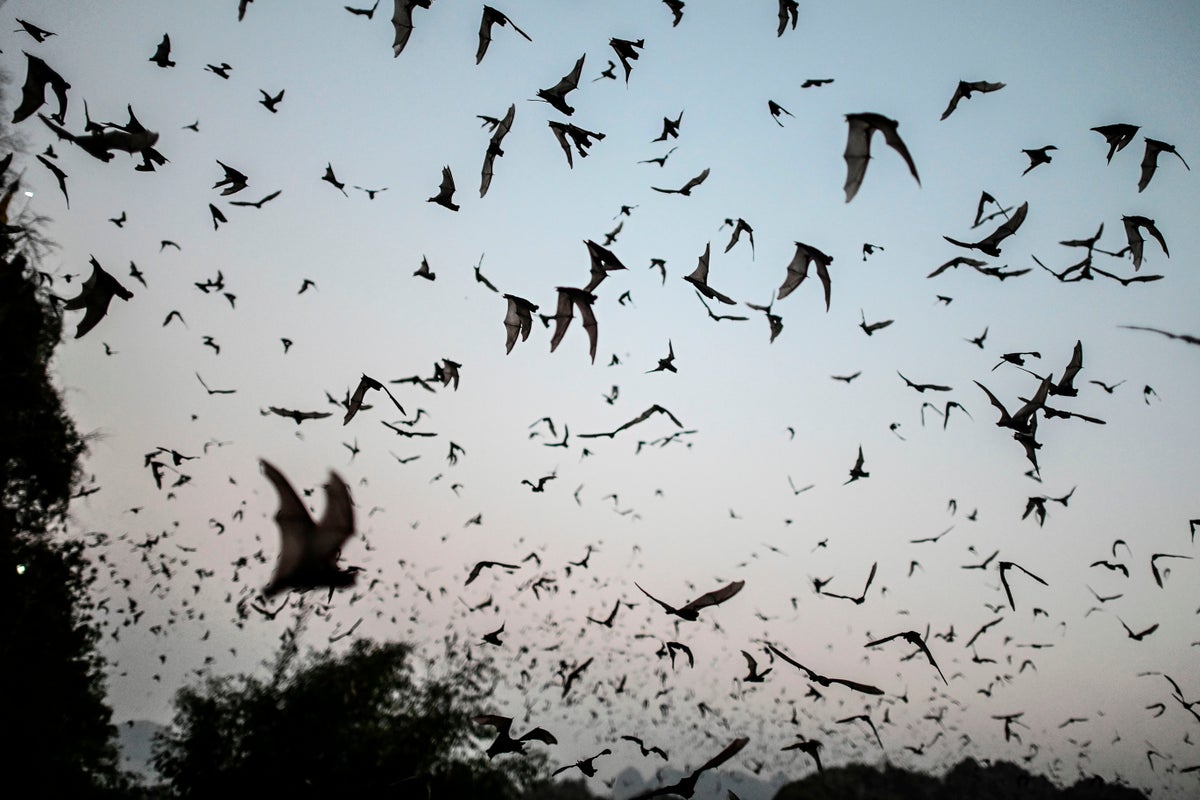
A virus recently discovered in a Russian bat is similar to the one causing the Covid-19 pandemic and may also infect humans, a new study finds.
Researchers, including those from Washington State University in the US, found that the spike proteins from the bat virus – named Khosta-2 – can infect human cells, and that it is resistant to both the antibodies and serum from individuals vaccinated for Sars-CoV-2.
They say both Khosta-2 and the Covid virus belong to the same sub-category of coronaviruses known as sarbecoviruses.
“Our research further demonstrates that sarbecoviruses circulating in wildlife outside of Asia – even in places like western Russia where the Khosta-2 virus was found – also pose a threat to global health and ongoing vaccine campaigns against Sars-CoV-2,” scientists wrote in the study, published in the journal PLOS Pathogens on Thursday.
Researchers call for the development of universal vaccines to protect against sarbecoviruses in general, instead of just against known variants of the Sars-CoV-2 virus.
“Unfortunately, many of our current vaccines are designed to specific viruses we know infect human cells or those that seem to pose the biggest risk to infect us. But that is a list that’s everchanging. We need to broaden the design of these vaccines to protect against all sarbecoviruses,” study co-author Michael Letko said in a statement.
Scientists initially discovered the viruses Khosta-1 and Khosta-2 in Russian bats in late 2020 but thought they were not a threat to humans.
“But when we looked at them more, we were really surprised to find they could infect human cells. That changes a little bit of our understanding of these viruses, where they come from and what regions are concerning,” Dr Letko said.
While Khosta-1 posed low risk to humans, researchers say Khosta-2 demonstrated some troubling traits.
They found that it can use its spike protein to infect cells by attaching to a receptor protein, called angiotensin converting enzyme 2 (ACE2), found throughout human cells.
It is the same ACE2 protein that the Covid-19 virus uses as a gateway to enter and infect human cells.
When scientists assessed if current anti-Covid vaccines can protect against the new virus using serum derived from human populations vaccinated for Covid-19, they saw that Khosta-2 was not neutralised.
Researchers also tested serum from people who were infected with the omicron variant against Khosta-2, but these antibodies were also ineffective.
While the new virus is lacking some genes thought to be involved in pathogenesis in humans, they say there is a risk of Khosta-2 recombining with a second virus like Sars-CoV-2.
“When you see Sars-2 has this ability to spill back from humans and into wildlife, and then there are other viruses like Khosta-2 waiting in those animals with these properties we really don’t want them to have, it sets up this scenario where you keep rolling the dice until they combine to make a potentially riskier virus,” Dr Letko said.







